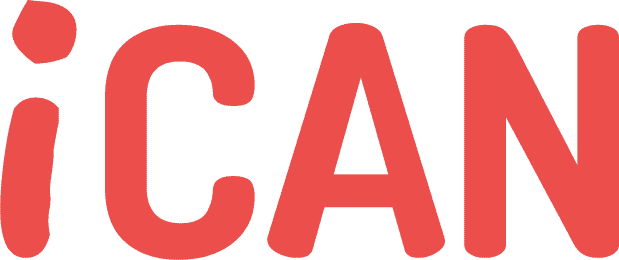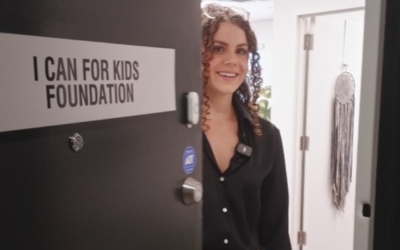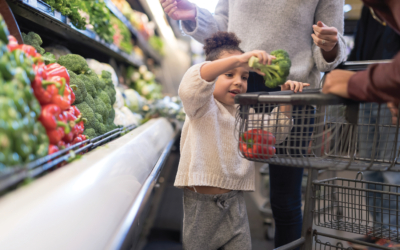By switching from a summer food program to year-round grocery gift card support, I Can for Kids (iCAN) increased the proportion of donations that directly reaches clients to approximately 85%. And we also made life easier for our clients and agency partners. Here’s how we did it.
When iCAN launched in 2015, we wanted to maximize operational efficiencies to extend our reach to as many of the thousands of food-insecure children across Calgary as possible. We established an army of volunteers and several cost-effective processes to:
- manage large volumes of food deliveries in a short period of time
- assemble thousands of individual food packs in just a few days
- distribute food packs to thousands of kids in need over the summer
Yet despite our successful efforts, the more we learned, the more we couldn’t ignore the obvious. The charitable food provision model creates an alternate and inefficient food system which often requires food-insecure households to travel to specific locations to access donated food that often fails to meet their unique cultural and health needs.
We also explored how other food programs optimized efficiencies. Many charities stated that they could convert one donated dollar into several dollars’ worth of food by leveraging purchasing power and industry partnerships. From day one, iCAN had formed strong alliances to procure considerable amounts of significantly discounted or donated food. Despite this strategy, we didn’t gain substantial administrative benefits due to the myriad of non-food expenses that impacted our bottom line.
As soon as we transitioned to grocery gift cards in 2020, we noticed a major uptick in organizational savings that enabled us to enhance the impact of donations on our recipients. Why? Because we eliminated or trimmed a whole host of expenses, including:
- owning or renting vehicles to transport food
- vehicle maintenance, repairs, insurance, and fuel
- project management costs
- time and labour to transport food, sort products, and assemble food packs
- disposal costs for expired or inedible products
- warehouse rent and utilities to receive, assemble, and store food
- equipment and equipment maintenance, including refrigeration
- volunteer recruitment and coordination
Even more importantly, our research with the University of Calgary shows that our new model also creates efficiencies for clients and agency partners. During study interviews, grocery gift card recipients noted that gift cards make their lives much easier than food provision programs. As one single mother explained: “Before grocery gift cards, there’s times when I could have gotten food hampers and decided not to just because of the logistics. And it’s about a $30 cab ride.” Our new approach offers clients:
- much less stress without the need to pick up and transport a food hamper
- total flexibility and dignity to shop at the store of their choice at a convenient time and location that best aligns with their schedules and their access to transportation
- complete confidence that the foods they need will be available to them
- a barrier-free way to access support from agencies that they trust
Agency partners told the researchers that our gift card model yields many logistical efficiencies. One organization observed that: “The I Can for Kids grocery gift card program has enabled us to serve a lot more people with food insecurity concerns. And we have more time to help with resiliency support or social connection.” Agencies prefer our new approach because they:
- find it much easier to distribute cards to clients rather than food hampers
- no longer need to store, refrigerate, assemble, bundle, or deliver food hampers
- experience significantly less workload when distributing cards rather than food hampers
- appreciate how much easier it is for clients with weak English skills to understand the gift card program compared to food provision programs
Thanks to our bold change, iCAN is well-positioned to maximize the impact of your contributions. With your help, we can continue to empower thousands of food-insecure families in Calgary to choose the healthy food they need, when they need it.
To join iCAN’s expanding list of sponsors and champions, check out the different ways you can get involved or donate.
To learn more about I Can for Kids and their unique approach to childhood food insecurity, visit www.icanforkids.ca
About Donald Barker
Donald Barker has worked as a registered dietitian for more than 25 years. He also has a professional background in communications and has long advocated for populations who face adverse, unjust, or systemic barriers that lead to higher rates of poor social, mental, emotional, and physical health outcomes. Donald currently volunteers as an Advisor with iCAN to support our transition towards evidence-based approaches that help improve the well-being of children in Calgary who live in low-income and food-insecure households.
About I Can for Kids Foundation
I Can for Kids works closely with multiple agency partners to target and distribute grocery gift cards to food-insecure families who are most in need. The iCAN grocery gift card program is a more dignified and inclusive approach to dealing with food insecurity, allowing families to shop where everyone else shops and to choose foods that are appropriate for their health and cultural needs. Explore their website to discover more about iCAN’s impact over the years.
For more information and media inquiries, please contact iCAN Executive Director, Bobbi Turko at bobbi@icanforkids.ca.




